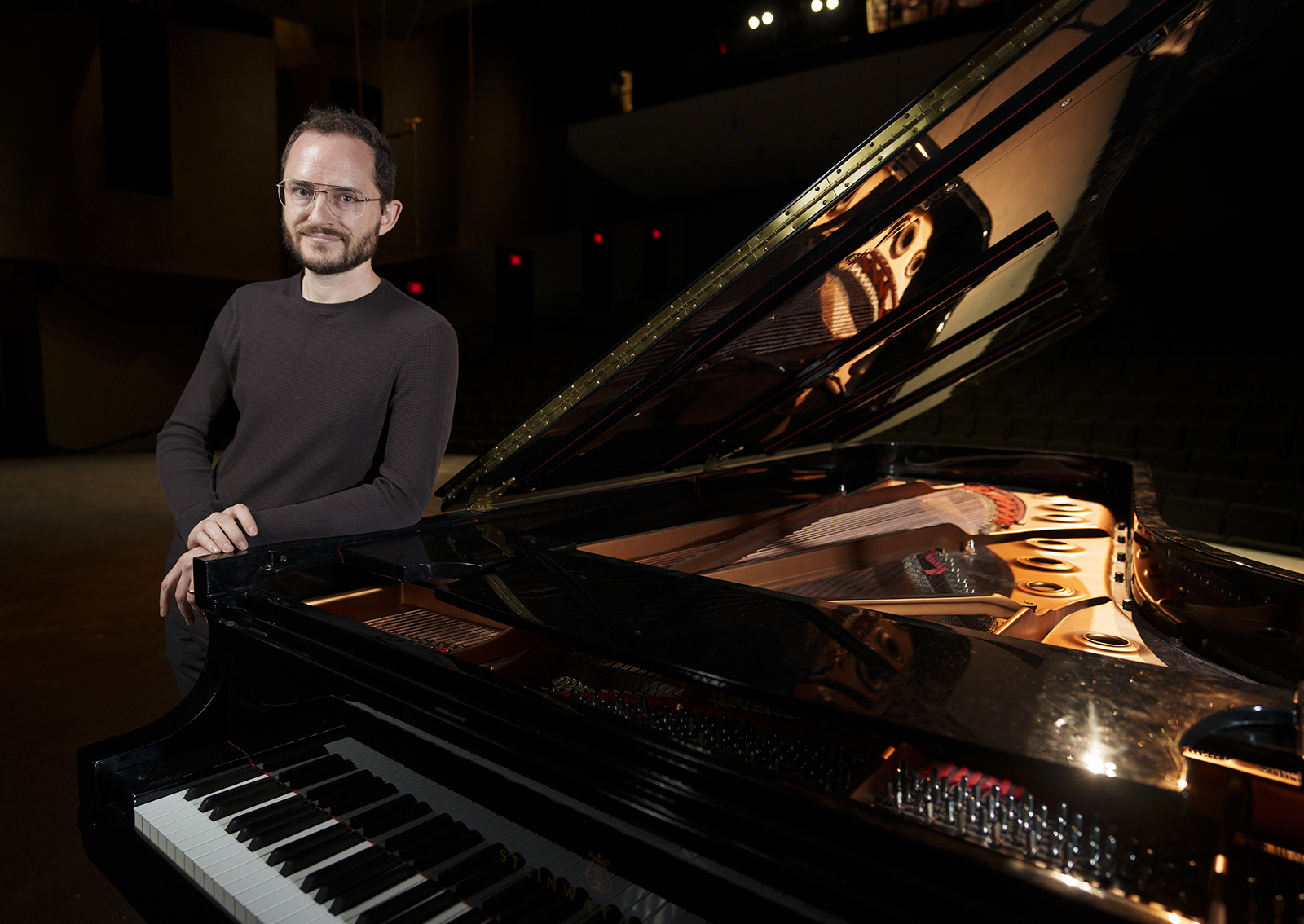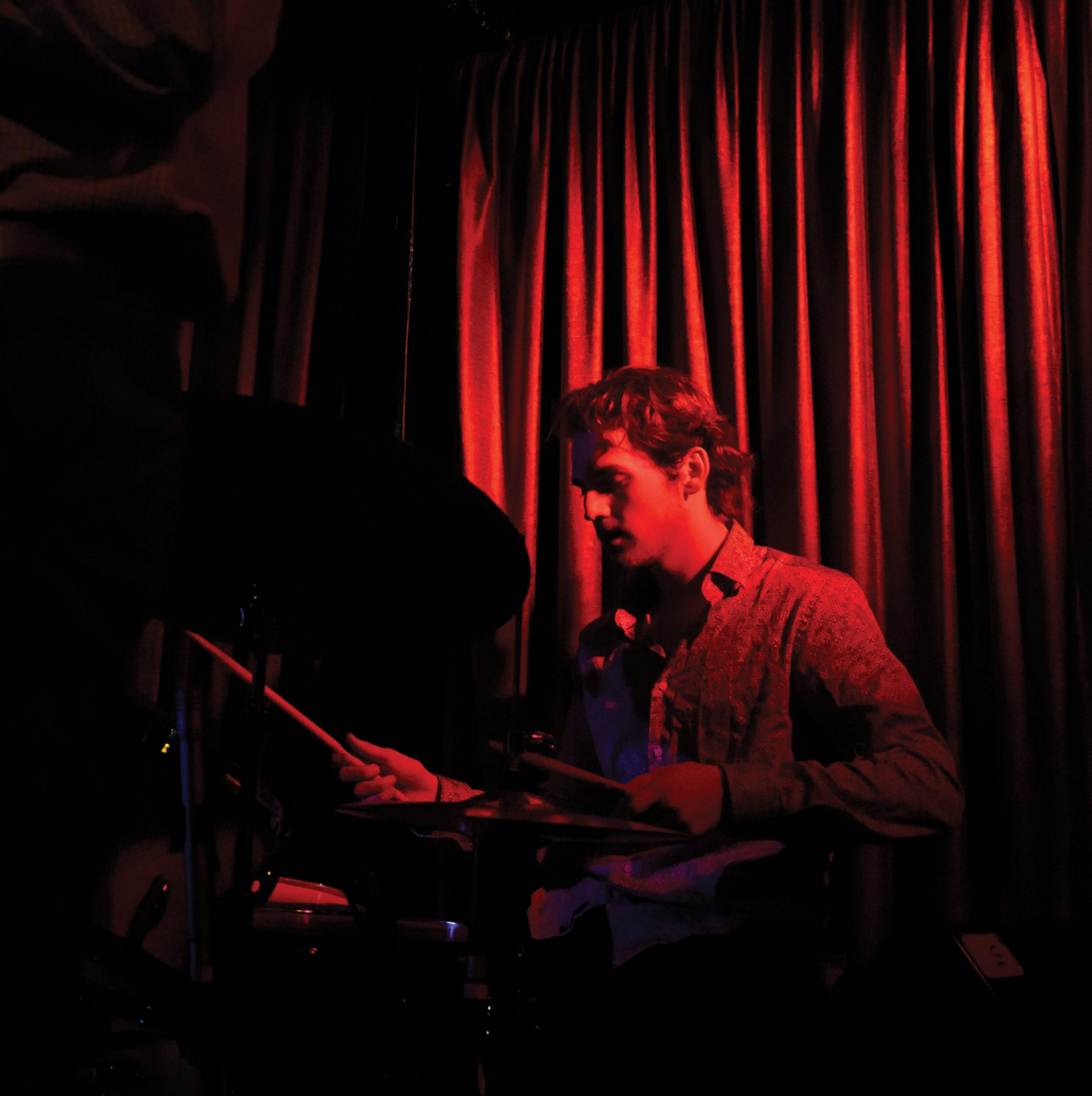Pascal Le Boeuf, assistant professor of the practice in music and technology, won the Grammy for Best Instrumental Composition on Feb 2; it was his third nomination in the category. He won the honor for “Strands,” performed with the Akropolis Reed Quintet (which commissioned the piece from Le Boeuf) and drummer Christian Euman, who joined him onstage to accept the award. Vanderbilt Magazine recently caught up with Le Boeuf to find out about his award-winning music and future plans.
How did it feel to win your first Grammy?
I did not to expect to win a Grammy, especially in a category with some of my heroes like Chick Corea and André 3000. I was happy to be recognized because it shed light on all the musicians involved in the project. The members of Akropolis Reed Quintet and Christian Euman not only worked very hard to create this music, but they are like a family to me. This Grammy gave me a soapbox to further recognize them and also the musicians to whom we pay tribute with this project: Geri Allen, Charles Mingus, Dave Brubeck,
Leonard Bernstein.
In your Grammy acceptance speech, you quoted Invisible Man by Ralph Ellison, saying “America is woven of many strands, let us recognize them.” Can you talk a little about specific elements of those composers that influence the piece?
The opening canon in “Strands” was inspired by Bernstein’s Mass and the improvisational approach and rhythm section hits by Geri Allen’s Twenty One. Mingus’ “mental score paper” approach to composing ensemble background figures and Brubeck’s approach to polyrhythms and structuring a larger work as an album were also influential. I wanted to examine what Ralph Ellison calls “the unity of American experience” by examining my own perspective on “American music.” I consider that Geri Allen, Dave Brubeck, Charles Mingus and Leonard Bernstein have helped me to understand the artist I am through their work and influence. All these artists have represented perspectives on the American experience.

(Harrison McClary/Vanderbilt University)
You’re known for doing a lot with electronic music, but “Strands” doesn’t use electronic music, does it?
Although the music is acoustic, I used technology to create it. This involved “remixing” small sections of the material in Logic using audio files to get a feel for different ways to develop material. Some of the notated music was aided by plugins in Sibelius notation software. We also used click tracks to execute some of the more demanding technical/rhythmic passages in the recording studio. It helps me to experiment with technology to explore and enhance my ideas, and I encourage my students to try things like this too.
What are you working on now?
I just finished a new string quartet for Afiara Quartet (involving Vanderbilt Blair viola professor Eric Wong) based on Beethoven’s String Quartet No. 8 in E minor. It’s eventually going to be a collaboration with DJ/Turntablist Kid Koala. We are all very excited!

BOBBY JONES, GOSPEL ICON AND GRAMMY WINNER
Bobby Jones, EdD’80, won a Lifetime Achievement Grammy at a separate ceremony in Los Angeles for his show Bobby Jones Gospel. For 35 years he hosted the show on the Black Entertainment Network, where he showcased the rising stars of gospel music to a national audience. The show began in 1976 on WSM-TV in Nashville as Nashville Gospel and moved to BET in 1980 as Bobby Jones Gospel, where it continued through 2015.



